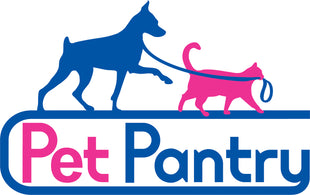Is It Safe to Feed Your Pet Raw and Kibble at the Same Time? Tips and Tricks for Balanced Feeding
Feeding your pet a mix of raw and kibble has become a hot topic in the pet care world. Some pet parents swear by it as a way to provide variety and maximize nutrition, while others warn against potential risks. So, is it safe to mix raw and kibble? Let’s break it down and uncover tips for making this feeding method work for you and your furry friend.
When Do I Switch from Puppy/Kitten Food to Adult Food?
Welcoming a furry friend into your life is a whirlwind of cuddles, chaos, and questions—one of which is bound to be: “When do I switch from puppy or kitten food to adult food?” Whether your little bundle of fur is a curious kitten or a boisterous puppy, their dietary needs change as they grow. Don’t worry; we’re here to guide you through this important milestone in your pet’s life!
Signs of Food Sensitivities
Did you know that your dog may have been experiencing food sensitivities without you realizing it? With food intolerances in dogs seemingly on the rise, it is as important as ever for pet owners to be aware of the warning signs so they can find solutions for improving their pet’s dietary health.
Cat Allergies and Intolerances
An adverse food reaction (AFR) is a catchall phrase that can be used to describe an inappropriate response to an ingredient found in a food, often a protein. In cats we see food intolerances and food allergies, with food allergies resulting in more severe symptoms. True cat food allergies involve an immune system response where the body attacks the offending agent (food) and sets off a storm of physical events.
Novel Proteins in Cat Food
Protein is the component in food that is the primary cause for dietary intolerance. If your cat suffers from any of the below symptoms, they may be suffering from a food sensitivity to one of the typical types of protein used in cat food (think chicken, beef, etc.). Changing to novel proteins in cat food can help this.
Best Way to Transition Pets to New Foods
It’s important to slowly transition your pet to a new food so their system has a chance to adapt to the change. The transition period should be at minimum, ten days and could take upwards of two weeks, depending on your pet’s sensitivity to change
Pancreatitis in Cats
Pancreatitis is inflammation of the pancreas. Your cat’s pancreas serves two main functions: it produces enzymes to help digest food and it secretes insulin to help regulate blood sugar levels. When the pancreas is inflamed, these two main jobs are inhibited and the enzymes that are supposed to be digesting food actually start to attack the pancreas and can cause significant harm.
Tips For The First Time Kitten Owners
Kittens are tiny, adorable, and playful. They have been known to soften the toughest of men, and melt ice cold hearts. If you have fallen in love with one of these magical creatures be comforted in knowing that they can be a wonderful addition to your family if you prepare yourself, and your home, for their arrival.
To Read more, click on the bold subject above... There are lots of useful tips on this article for your new kitten.
Dietary Fiber in Pet Food
Dietary fiber is the non-digestible portion of a food that contributes to digestive health and stool quality. Dietary fiber in pet food can have various beneficial effects on your pet, depending on their needs.
Vitamins are Essential in Pet Food
Vitamin supplementation is used in kibble and wet pet foods to ensure it contains all the nutrients required to sustain life. Without vitamin supplementation, a food may not meet the nutrient requirements of a pet.
Feeding Your Dog Kibble And Wet Food: How Much and How Often?
When it comes to knowing how much kibble and wet food to feed our dogs, it can take a bit of trial and error. One of the most frequent questions we get asked is "how much do I feed my dog?" With all the different considerations of weight, activity level, age, and environment, that can be difficult to answer. However, we've compiled some of our top tips to help you decide how much to feed your canine companion.
A guide to choosing the right food for cats
With so many different foods on the market, how do you choose a food that works well for your cat? There are many well-formulated cat foods to choose from today, so here are some guidelines to follow.













